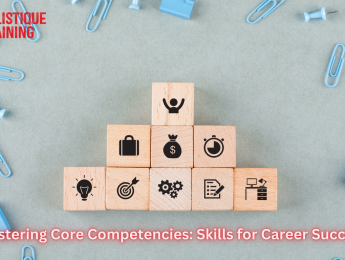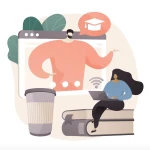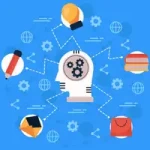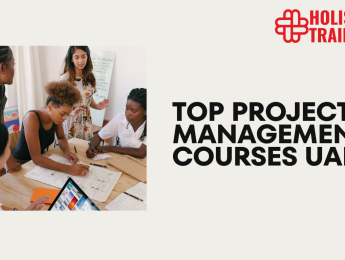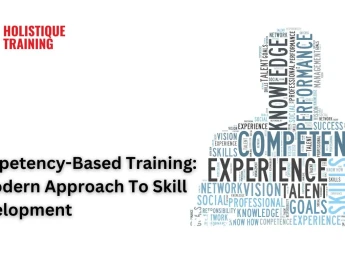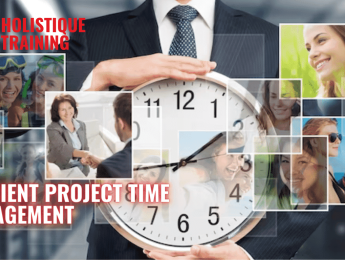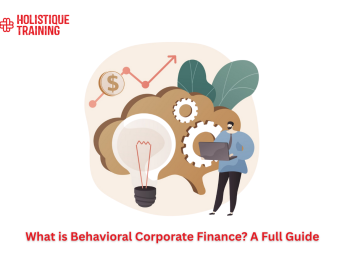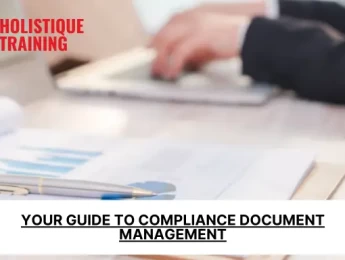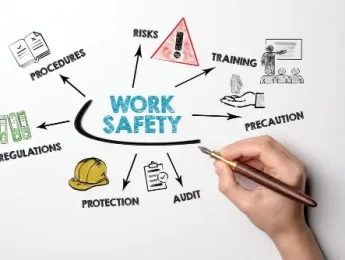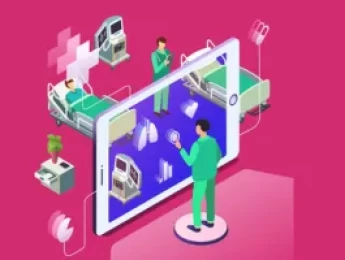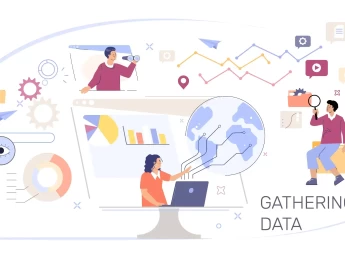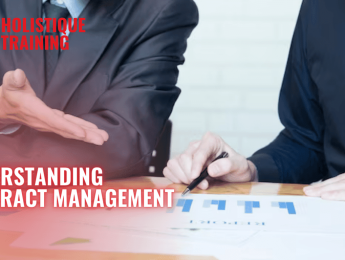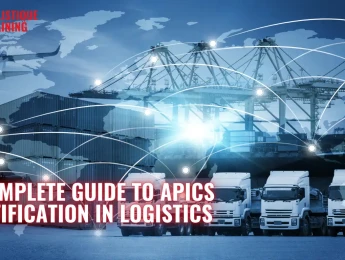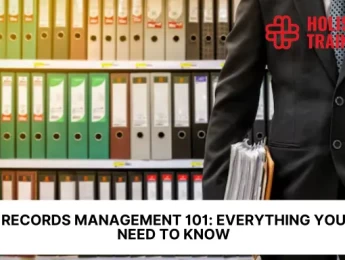- Table of Contents
- Introduction
- What Are Core Competencies?
- Why Core Competencies Matter in Today’s Workforce?
- Self-Assessment: Identifying Your Current Core Competencies
- Step 1: Reflect on Past Experiences
- Step 2: Use Assessment Tools
- Step 3: Seek Feedback
- Step 4: Rate Yourself
- Step 5: Identify Gaps and Set Goals
- Communication Skills: A Foundational Competency to Master
- Problem-Solving and Critical Thinking
- 1. Define the Problem Clearly
- 2. Gather Information
- 3. Brainstorm Solutions
- 4. Evaluate Pros and Cons
- 5. Make and Implement the Decision
- 6. Review and Reflect
- Adaptability and Resilience in a Changing World
- Teamwork and Collaboration
- Continuous Learning and Self-Development
- Practical Strategies to Enhance Core Competencies
- 1. Attend Workshops and Webinars
- 2. Read Regularly
- 3. Volunteer
- 4. Request Feedback
- 5. Practice Reflection
- Measuring Progress and Sustaining Growth
- Step 1: Use Key Performance Indicators (KPIs)
- Step 2: Track Regularly
- Step 3: Reflect and Adjust
- Step 4: Create a Growth Plan
- Step 5: Stay Consistent
- Conclusion
Introduction
In today's fast-paced, ever-changing professional landscape, possessing a strong set of core competencies has become a vital foundation for personal and career success. These essential skills go beyond technical expertise—they encompass interpersonal, cognitive, and emotional abilities that enable individuals to thrive in different environments, adapt to challenges, and collaborate with others effectively. Whether you're navigating the modern workplace, pursuing academic goals, or developing personal relationships, core competencies serve as a compass guiding your actions and decisions.
In recent years, employers and educators alike have shifted their focus toward assessing these competencies to identify well-rounded individuals who can innovate, lead, and contribute meaningfully to teams. From communication and adaptability to critical thinking and continuous learning, mastering these skills isn't just an added advantage—it's a necessity.
In this article, we will explore what core competencies are, why they matter, and how you can assess, develop, and sustain them throughout your personal and professional journey. With practical strategies, relevant studies, and helpful tools, this guide is designed to help you elevate your core competencies and stay ahead in a competitive world.
What Are Core Competencies?
Core competencies are fundamental abilities, knowledge, and behaviors that are critical to achieving success across various domains. These competencies are not job-specific skills, but rather universal traits that can be transferred and applied across different roles and industries. They include areas such as communication, problem-solving, teamwork, adaptability, leadership, and ethical judgment.
In different contexts, core competencies may carry slightly varied meanings:
Context | Core Competency Examples | Application |
Personal | Self-awareness, emotional intelligence, resilience | Managing emotions, resolving conflicts |
Educational | Critical thinking, learning agility, collaboration | Academic success, group projects, research analysis |
Professional | Communication, adaptability, decision-making | Team leadership, innovation, client relations |
These competencies provide a foundation for building specialized skills. For instance, someone with strong communication skills is better positioned to excel in sales, customer service, or leadership roles. Similarly, critical thinkers are likely to perform better in problem-solving roles like engineering or data analysis.
The concept of core competencies was first introduced by Prahalad and Hamel (1990) in the business context, where it referred to the collective learning and skills that give a company its competitive advantage. Since then, the idea has evolved to apply to individuals seeking personal growth and career excellence.
Understanding your core competencies allows you to make informed career choices, identify areas for development, and enhance your personal brand.
Why Core Competencies Matter in Today’s Workforce?
The modern workforce demands more than just technical know-how. As automation and artificial intelligence take over routine tasks, human-centric skills—core competencies—have become critical differentiators. According to a 2023 report by the World Economic Forum, the top job skills for the future include analytical thinking, resilience, flexibility, and emotional intelligence—all of which are core competencies.
Companies seek employees who can think critically, adapt to new technologies, and work collaboratively with diverse teams. These abilities are especially crucial in remote or hybrid work environments, where communication and self-management skills are tested daily. Employers want professionals who not only know how to do the job but can innovate, collaborate, and lead through uncertainty.
Moreover, a study published in the Harvard Business Review (2022) found that organizations that invest in developing employees’ core competencies experience a 20% improvement in productivity and a 15% reduction in turnover. This highlights the direct connection between individual competencies and organizational success.
For employees, strong core competencies open doors to leadership roles, higher salaries, and better job satisfaction. They also foster career agility, enabling individuals to pivot across industries or roles more smoothly.
In short, core competencies are not optional. They are essential assets that ensure long-term employability, personal fulfillment, and professional growth in a dynamic and demanding job market.
Self-Assessment: Identifying Your Current Core Competencies
Before you can improve your core competencies, you must first understand your current strengths and weaknesses. Self-assessment is a valuable tool that helps you recognize where you stand and what areas need development.
Step 1: Reflect on Past Experiences
Think about times when you solved a complex problem, led a project, managed a conflict, or adapted to a challenge. What skills did you use? These experiences often reveal key competencies.
Step 2: Use Assessment Tools
Many validated tools are available for identifying core competencies. The VIA Character Strengths Survey and the DISC Personality Assessment are good starting points. These tools help highlight traits such as communication style, problem-solving ability, and leadership potential.
Step 3: Seek Feedback
Ask peers, managers, or mentors for honest feedback. Sometimes, others can see strengths or gaps you may not notice yourself. A 360-degree feedback method, which gathers input from multiple sources, can provide a well-rounded perspective.
Step 4: Rate Yourself
Create a list of competencies (e.g., communication, teamwork, adaptability) and rate yourself on a scale from 1 to 5 in each. Be honest and specific about what supports each score.
Step 5: Identify Gaps and Set Goals
Compare your self-assessment with the expectations in your current or desired role. Highlight areas that need improvement and set SMART goals (Specific, Measurable, Achievable, Relevant, Time-bound) to address them.
Conducting a self-assessment builds self-awareness, which is the first step toward meaningful growth and performance improvement.
Communication Skills: A Foundational Competency to Master
Communication is one of the most essential core competencies, impacting every facet of life. It includes verbal, non-verbal, and written communication, as well as listening and presentation skills.
Types of Communication & How to Improve:
Type | Description | How to Improve |
Verbal | Speaking clearly, tone, active listening | Join Toastmasters, record and review conversations |
Non-verbal | Body language, eye contact, gestures | Practice in front of a mirror, get peer feedback |
Written | Emails, reports, messaging | Take writing courses, use grammar tools |
Visual | Charts, slides, infographics | Learn design basics, study good presentations |
Interpersonal | Emotional tone, empathy, rapport | Practice empathy, engage in role-playing |
Strong communicators are more persuasive, build better relationships, and often emerge as leaders. Harvard psychologist Dr. Amy Cuddy notes in her TED Talk“Your Body Language May Shape Who You Are” that non-verbal cues influence both how others perceive us and how we perceive ourselves.
To master communication, start small: improve your email clarity, work on active listening, and eliminate filler words in speech. These minor changes compound into major results over time.
Problem-Solving and Critical Thinking
Developing critical thinking and problem-solving skills is key to making sound decisions, especially under pressure. These skills help you evaluate information, analyze outcomes, and propose innovative solutions.
1. Define the Problem Clearly
Avoid vague definitions. Use tools like the 5 Whys to get to the root cause. A clear problem leads to better solutions.
2. Gather Information
Use reliable sources, including data, case studies, and expert insights. Critical thinkers don’t rely on assumptions—they seek evidence.
3. Brainstorm Solutions
Think creatively. Generate multiple ideas without judgment. Use mind maps or brainstorming apps to capture all possibilities.
4. Evaluate Pros and Cons
List advantages and disadvantages for each option. Consider feasibility, impact, and alignment with goals.
5. Make and Implement the Decision
Choose the most logical solution and act on it. Execution is as important as planning.
6. Review and Reflect
After implementation, evaluate the outcome. What worked? What didn’t? Use insights to improve future decision-making.
These strategies can be practiced through simulations, puzzles, real-world challenges, or structured problem-solving sessions.
Adaptability and Resilience in a Changing World
In an unpredictable world shaped by technological disruption and global crises, adaptability and resilience are indispensable core competencies.
Adaptability refers to how quickly and effectively you can adjust to change. Resilience is your capacity to recover from setbacks and continue moving forward. Together, these traits enable people to thrive despite uncertainty.
According to a study published by McKinsey & Company (2022), companies that foster adaptable and resilient employees experience 2.4 times greater success during disruptions, such as the COVID-19 pandemic. The study emphasized the importance of flexibility in roles, digital upskilling, and emotional strength.
How to Build These Skills:
- Embrace change: View it as an opportunity, not a threat.
- Practice mindfulness: Techniques like meditation increase emotional regulation.
- Develop problem-focused coping: Focus on solutions rather than dwelling on issues.
- Stay connected: A support network boosts resilience.
- Take initiative: Proactively seeking challenges builds adaptability muscles.
Incorporating these habits into daily life enhances both your professional and personal ability to navigate change with confidence.
Teamwork and Collaboration
In any work or academic setting, the ability to collaborate effectively with others is indispensable. Teamwork as a core competency involves active listening, conflict resolution, accountability, and the ability to contribute meaningfully toward shared goals.
The Journal of Applied Psychology (2020) published a study showing that teams with high collaboration skills performed 25% better on problem-solving tasks than teams with low collaboration levels. This highlights that success is not just about individual brilliance, but about synergy.
How to Develop Teamwork Skills:
- Active Participation: Engage in group discussions, offer ideas, and be present.
- Constructive Feedback: Learn to give and receive feedback with empathy.
- Understand Roles: Clarify responsibilities within the team to avoid overlap and confusion.
- Celebrate Team Wins: Recognize collective achievements, not just individual contributions.
- Conflict Management: Address misunderstandings early and mediate with neutrality.
Virtual teams, in particular, demand even stronger collaboration skills. Tools like Slack, Trello, and Zoom are useful, but soft skills—like empathy, clarity, and follow-through—are what truly make a team function smoothly.
By focusing on collaboration as a daily habit rather than a situational need, you’ll build trust, cohesion, and productivity in any environment.
Continuous Learning and Self-Development
Core competencies are not static—they must evolve over time. This requires a mindset of continuous learning and self-improvement. In the era of lifelong learning, individuals who invest in developing themselves are better equipped to stay relevant, resilient, and competitive.
A report by Forbes (2023) revealed that 70% of high-performing professionals spend at least five hours per week on self-directed learning. Whether it’s reading, taking online courses, or attending webinars, these habits help professionals stay sharp and prepared.
Key Strategies for Continuous Learning:
- Set Learning Goals: Identify what skills or knowledge you want to acquire each quarter.
- Use Diverse Resources: Podcasts, online courses (Coursera, LinkedIn Learning, Holistique training), books, and blogs offer flexible options.
- Apply What You Learn: Integrate new skills into your daily work to reinforce retention.
- Seek Mentors: Learn from experienced professionals who can offer guidance and feedback.
- Join Learning Communities: Participate in peer groups or forums that encourage discussion and knowledge sharing.
When you link core competencies with continuous learning, you make your development process intentional, structured, and sustainable.
Practical Strategies to Enhance Core Competencies
Improving your core competencies doesn’t require a complete life overhaul. Simple, consistent strategies can make a significant difference.
1. Attend Workshops and Webinars
These provide interactive, expert-led opportunities to build skills and network. Look for local events or platforms like Eventbrite and Coursera.
2. Read Regularly
Books, articles, and journals on communication, psychology, leadership, and critical thinking are excellent resources. Reading builds vocabulary, comprehension, and perspective.
3. Volunteer
Volunteering allows you to step outside your comfort zone, take initiative, and develop teamwork, leadership, and adaptability in real-world scenarios.
4. Request Feedback
Constructive criticism helps you refine your behaviors and skills. Schedule regular check-ins with mentors, managers, or peers.
5. Practice Reflection
Keep a development journal where you write about daily challenges, decisions, and improvements. This builds self-awareness and encourages intentional growth.
Each of these strategies enhances different facets of your core competencies. Combined, they provide a robust framework for personal and professional excellence.
Measuring Progress and Sustaining Growth
Improving your competencies is only half the journey—measuring your progress and ensuring long-term growth is equally important.
Step 1: Use Key Performance Indicators (KPIs)
Identify measurable indicators for each skill. For instance:
- Communication: Audience engagement score, clarity of reports.
- Teamwork: Peer feedback ratings, project delivery times.
- Adaptability: Time taken to adjust to new tools or processes.
Step 2: Track Regularly
Use a spreadsheet, habit tracker, or journal to record observations and milestones. Review weekly or monthly to identify trends.
Step 3: Reflect and Adjust
Ask yourself:
- What progress have I made?
- What still needs improvement?
- What resources or support do I need?
Step 4: Create a Growth Plan
Outline how you will continue your development over 6–12 months. Include courses to take, experiences to seek, and people to learn from.
Step 5: Stay Consistent
Competency development is a long-term effort. Build rituals around learning and improvement to embed them into your daily life.
By tracking your growth, celebrating small wins, and adjusting your approach, you ensure that your skillset remains strong, relevant, and future-ready.
Conclusion
Core competencies are the foundation of professional and personal success in today’s interconnected, fast-evolving world. From effective communication and critical thinking to teamwork and adaptability, these essential skills determine how well we navigate challenges, connect with others, and achieve our goals.
In this article, we explored the definition and importance of core competencies across contexts, identified ways to assess your current abilities, and offered actionable strategies to strengthen each one. We also emphasized the value of continuous learning, self-assessment, and practical application as keys to long-term growth.
The journey to enhancing core competencies isn’t always linear—it requires awareness, effort, and persistence. However, the rewards are significant: improved job performance, better relationships, higher adaptability, and increased self-confidence. By integrating small but consistent changes in your daily habits, you lay the groundwork for sustained professional excellence and personal fulfillment.
As global work environments become more dynamic, those who actively invest in their core competencies will stand out—not just for what they know, but for how they think, act, and grow. The future belongs to the adaptable, the communicative, and the curious. Don’t wait to develop these vital skills—start today.
Don't forget to subscribe to our newsletter for weekly insights, tips, and tools to elevate your core competencies and unlock your full potential.


